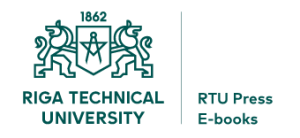Aviokompānijas drošības kultūras kā riska faktora teorētisko un metodoloģisko vērtēšanas pieeju izstrāde
Summary of the Doctoral Thesis
Juris Maklakovs, Riga Technical University, Latvia
![]() https://orcid.org/0000-0002-1022-2016
https://orcid.org/0000-0002-1022-2016
In the 21st century, the systems approach to flight safety began to dominate. ICAO declares 2020 and 2021 the years of safety culture and calls for continued work that would improve safety culture. It is becoming obvious that both the human factor and poor safety culture are risk factors in aviation that directly affect flight safety. Furthermore, a positive safety culture is characterized by mutual trust, which is based on communication, common understanding of the importance of safety and employees’ faith in the effectiveness of preventive measures. Therefore, it is important that every aviation company manager is aware of this and is able to identify and improve the level of safety culture.
Additional information
| Publication type | |
|---|---|
| DOI | |
| Defence date | 21.04.2023. |
| Format | |
| ISBN (pdf) | |
| Pages | 50 |
| Publication date | |
| Published online | |
| Publication language | |
| Publisher | RTU Press |
| Country of Publication | Latvia |



